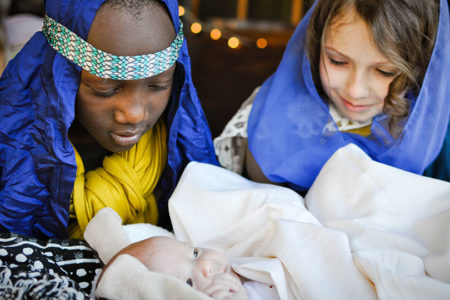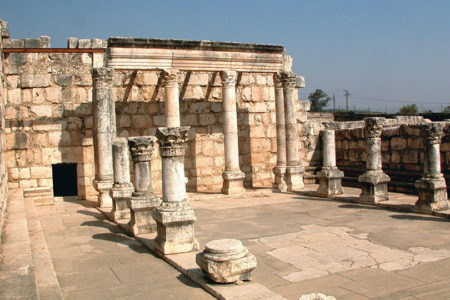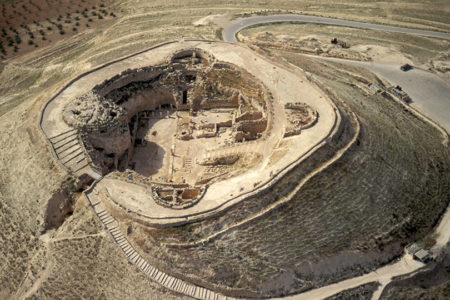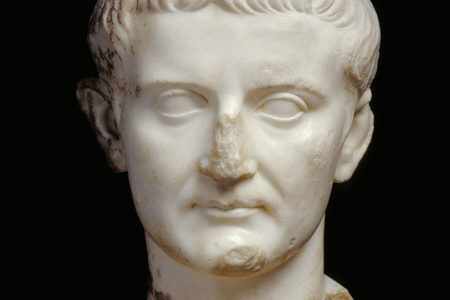Chai, Chai, V’Kayam Conclusion
Growing up I always loved to dance the hora, a Hebrew folk dance that was stomped to merrily while singing “Hava Nagilah.” We also danced to another Hebrew song. The words go like this: Dovid melech Yisrael chai chai v’kayam. They are usually translated “David, king of Israel, lives forever.” But they actually say, “David, king of Israel, lives, lives, and exists.”
How can he exist if he is dead?Some say the phrase merely implies that David lives in the hearts of the Jewish people. But in Psalm 23 David wrote, “Surely goodness and mercy shall follow me all the days of my life; and I will dwell in the house of the Lᴏʀᴅ forever” (v. 6). Either David dwells today in the house of the Lord, or he was deceived by his faith in God and in life after death.
The Shunammite woman in 2 Kings 4 no doubt believed as David did. In fact, she had such great faith that she even believed God would raise the dead.
Out of her wealth, generosity, and kindness, she cared for the prophet Elisha by providing meals for him in her home and then building a private room for him on the roof of her house, where he would stay when he came to town. And God rewarded her by giving her a son.
But her son created a need she never had before. When the boy was old enough to go to the fields to help his father, he was struck ill (4:19). His father told a servant, “‘Carry him to his mother’” (v. 19). The Bible says the boy sat on his mother’s lap until noon, then died (v. 20).
It is difficult to imagine how this woman must have felt. When she had no child, she was content. She asked for nothing and needed nothing. Then God gave her the one thing she never dreamed she would have: a son to love. Then He snatched him away.
Despite this dreadful loss, the woman evidenced no emotion. She did not weep. She did not complain. She did not cry out to God and ask Him why He had visited this great tragedy on her. In fact, she did not even tell her husband.
Instead, she carried her son to Elisha’s room on the roof of her home, “laid him on the bed of the man of God, shut the door upon him, and went out. Then she called to her husband, and said, ‘Please send me one of the young men and one of the donkeys, that I may run to the man of God and come back’” (vv. 21–22).
When her husband asked why she was going, all she said was “shalom,” meaning, “peace,” or “everything is okay.” She commanded her servant, “Drive, and go forward; do not slacken the pace for me unless I tell you” (v. 24). Their destination was Mount Carmel, about 20 miles west.
The Shunammite was on a mission: bring back Elisha. And she could have had only one reason to muster such fierce determination and strength. She believed unequivocally that God would raise her son from the dead.
When Elisha saw her coming, he sent his servant, Gehazi, to meet her. But this time was not like the others, when she spoke to Gehazi as an intermediary. This time her need was so great that she went straight to the prophet himself and fell at his feet.
“‘Her soul is in deep distress, and the Lᴏʀᴅ has hidden it from me, and has not told me’” Elisha said (v. 27).
So she said, “Did I ask a son of my lord? Did I not say, ‘Do not deceive me’?” Then he said to Gehazi, “Get yourself ready, and take my staff in your hand, and be on your way….And the mother of the child said, “As the Lᴏʀᴅ lives, and as your soul lives, I will not leave you.” So he arose and followed her (vv. 28–30).
Gehazi arrived at the house first and realized the boy was dead. Then Elisha arrived, went to his room on the roof where the boy lay on the bed, shut the door, prayed to the Lord, and brought the child back to life (vv. 31–35). When Elisha called the woman to get her son, “she went in, fell at his feet, and bowed to the ground; then she picked up her son and went out” (v. 37).
So ends the account. But its relevance extends far beyond Shunem. Many people claim to believe in God, but they depend on Him for nothing. They are self-sufficient, trusting in themselves. But self-sufficiency is not faith; nor does it please God. He wants God-sufficiency: “Call to Me, and I will answer you, and show you great and mighty things, which you do not know” (Jer. 33:3).
King David wrote, “Oh, taste and see that the Lᴏʀᴅ is good; blessed is the man who trusts in Him!” (Ps. 34:8).
It is during our greatest need that God gives us the greatest opportunities to trust Him and experience His deliverance. When the Shunammite had no real need, she had no reason to seek God’s help. So God created a need to draw her close to Him, then purposely hid her tragedy from Elisha so that she would ask for help. In the end, He rewarded her incredible faith with an even greater miracle than He had blessed her with previously.
All of us have different needs. But we all have one in common: the need to be purified from sin. But before we can receive the cure, we must admit we have a problem. Before we can experience God’s cleansing, we must see our inadequacy to cleanse ourselves. And before we can receive His gift of eternal life, we must ask for it.
But such faith requires another ingredient: belief that God can raise the dead.
If you confess with your mouth the Lord Jesus and believe in your heart that God has raised Him from the dead, you will be saved (Rom. 10:9).
Twenty-six years ago at Christmas-time, I understood that Jesus died in my place. Never before had I had assurance about forgiveness of sin. Jesus offered me assurance. Like King David, I wanted to dwell in the house of the Lord forever. But I struggled to believe Jesus arose from the dead. Suddenly I realized why His death was an acceptable sacrifice: He was without sin because He was God (Mic. 5:2). Isaiah had foretold Jesus’ death and resurrection 700 years before Jesus was born (Isa. 53). God can do anything, even rise from the dead.
The Shunammite woman never doubted that God would bring her son back to life. And if she believed God would do that for her, why is it so difficult for so many today to believe that He loves them enough to come to Earth to become their final sacrifice for sin, so they can have everlasting life?
I was overjoyed when I realized the truth about chai, chai, v’kayam—wonderful words that testify to life after death. When you die, you die. But when you’re dead, you’re still not dead. God affirmed that the patriarchs are alive when He told Moses at the burning bush, “I am the God of your father—the God of Abraham, the God of Isaac, and the God of Jacob” (Ex. 3:6). He is the God of the living, not the dead.
Today the Shunammite dwells with David and the patriarchs in the house of the Lord. Someday she will receive a new, immortal, resurrected body. And someday, so will I.








Thank you so much for this powerful teaching, it brought me to tears. Thank you for sharing. And you Lord for ultimate sacrifice.